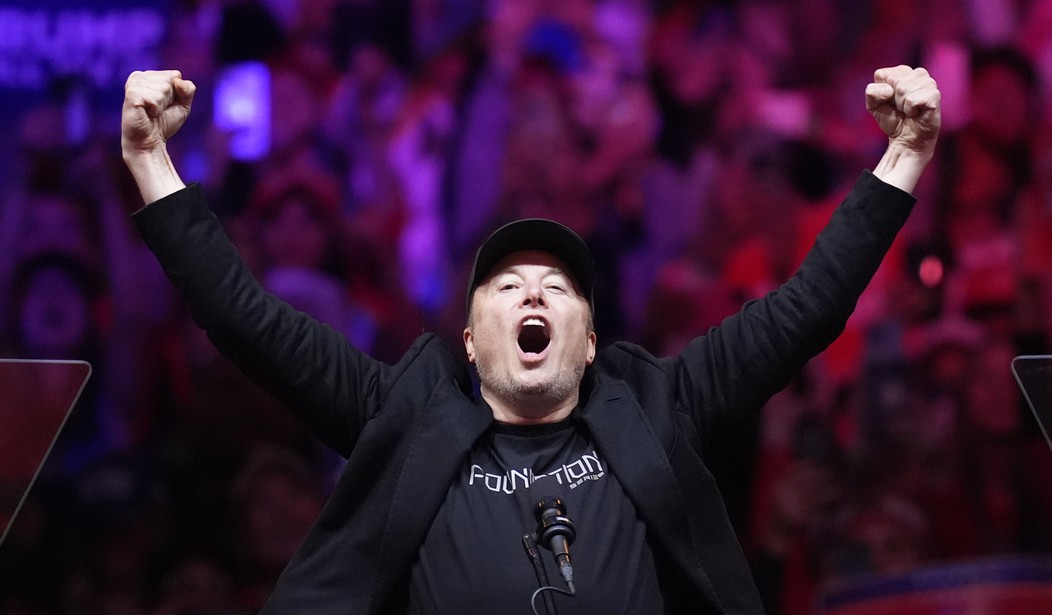Philadelphia District Attorney Larry Krasner filed a lawsuit Monday against Elon Musk and his super political action committee PAC America in an effort to stop Musk’s one million dollar voter giveaway in Pennsylvania. The district attorney alleges that the sweepstakes is an “illegal lottery scheme."
The lawsuit claims Musk’s sweepstakes is aimed at persuading registered voters to pledge support for the X owner’s favored causes in exchange for a chance to win a considerable sum of money, according to CNN.
“America PAC and Musk are lulling Philadelphia citizens...to give up their personal identifying information and make a political pledge in exchange for the chance to win $1 million,” Krasner stated in the complaint. Krasner alleges that the giveaway is essentially a lottery, which must be “operated and administered by the state” under Pennsylvania law.
Pennsylvania’s government isn’t the only entity that targeted Musk over the sweepstakes. The Justice Department reportedly sent a letter to his super PAC warning that the giveaway could violate federal laws, particularly those outlawing cash incentives for voter registration.
Krasner claims Musk’s contest is tailored only for Trump voters. “Though Musk says that a winner’s selection is ‘random,’ that appears false because multiple winners that have been selected are individuals who have shown up at Trump rallies in Pennsylvania,” the lawsuit reads.
Despite critics’ claims, it is not quite clear whether Musk’s sweepstakes is in line with the law. Richard Briffault, a professor at Columbia University Law School, indicated that it might be a grey area when it comes to federal law. “It clearly violates the spirit of the statute, but it’s not 100% clear to me that it violates the letter of the law,” he told ABC News.
Federal election laws prohibit the offering of monetary incentives for voter registration or participation. They carry penalties including fines of up to $10,000 or up to five years in prison. “This isn’t like giving a ride to the polls," Briffault said.
Doug Spencer, an election law professor at the University of Colorado, also chimed in, explaining how the structure of the sweepstakes might make prosecuting Musk more complicated. He indicate that the PAC’s focus on having people pledge support the First and Second Amendments rather than a political candidate could protect it from prosecution. “This is structured in a way that creates ambiguity,” he said.
Musk's initiative appears to violate the law because the exclusive eligibility for registered swing state voters and Musk’s enthusiastic support for Trump suggest that boosting voter registration makes up the primary objective of the giveaway, experts said.
“Clearly his intent is to offer monetary incentive to people to get them to register to vote,” James Gardner, a professor of election law at the University of Buffalo, told ABC News.
Doug Spencer, a professor of election law at the University of Colorado, agreed. “It seems like it really crosses the line,” he said.
Rick Hasen, the director of the UCLA School of Law’s Safeguarding Democracy Project, called the giveaway “clearly illegal” in a blog post on Saturday.
Of course, there is also the political dimension of Krasner’s lawsuits and potential efforts on the part of the federal government to go after Musk. It is reasonable to ask whether this would be happening if Musk supported Vice President Kamala Harris. Krasner is a staunch progressive Democrat, as are many of the bureaucrats at the Justice Department.
Indeed, you might remember that progressive California District Attorney George Gascón recruited Krasner, as well as other George Soros-backed officials, to impose far-leftist versions of criminal justice across the country. These people act more as political operatives than law enforcers.
Regardless of the legality of Musk’s sweepstakes, it is not beyond the pale to suggest that Krasner’s lawsuit is just a way to ensure that Harris wins in November – especially given the stakes of the election.













Join the conversation as a VIP Member